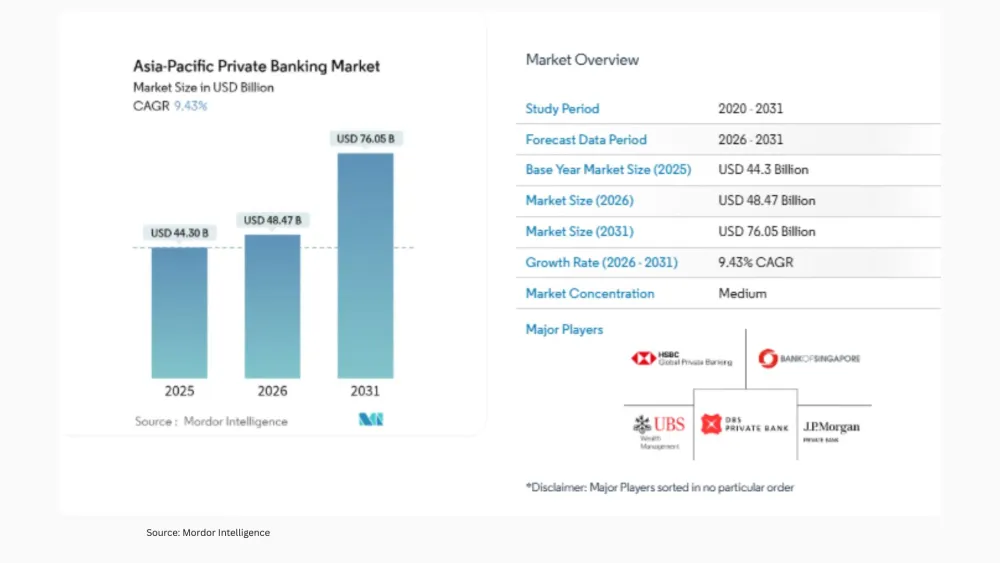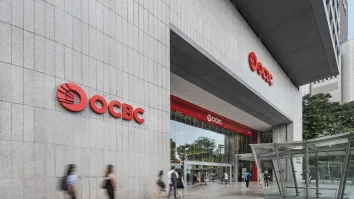
What fintech solutions do Asian banks offer to SMEs?
For banks to truly resolve the SMEs’ pain points, they will have to do more than just offer conventional banking products and services.
The digitisation drive doesn’t just stop with banks, as Singapore’s UOB has learned with its partnership with Google to train customers how to use the internet and other tools to enhance exports. This programme can be accessed by anyone at goglobal.withgoogle.com and consists of online learning modules and a series of full day workshops for customers to learn the arts of online selling. There are also certification courses run for business in digital marketing, which presumably focus on how to use Google’s suite of products, but which also helps exporters. Users will also find customer success stories from local companies like fashion retailer Benjamin Barker and jewelry retailer RSIS.
“The Google Go Global programme has empowered us with training and tools required to explore digital advertising in a low-risk and collaborative environment. The training classes have enabled us to go beyond just an understanding of the tools Google offers – we are now equipped with in-house capabilities to create, operate and optimise campaigns without having to outsource. By carefully matching ad placements to our business objectives, we were able to reach out to potential customers in Australia from the comfort of our office in Singapore. This was a great source of support for our Australian marketing team as customer traffic was driven to both our online and physical stores,” noted Benjamin Barker.
Mervyn Koh, managing director and country head of business banking, Singapore at UOB said Google Go Global was expressly designed to help SMEs understand international trade and industry best practices, and show them how to incorporate their learnings to their own business models. To ensure customers received expert advisory lessons, UOB senior bankers and economists shared their insights at workshops and engaged SME executives.
Rajeev Chalisgaonkar, global head, business banking at Standard Chartered, said with more Asian SMEs venturing into new overseas markets, global banks will be playing a larger advisory role on cross-border trade and foreign product regulations.
“As SMEs venture into international trading, a growing number face new challenges and are exposed to new risks, such as forex volatility,” he said. “Because they’re small, they typically don’t have dedicated departments to focus on these issues. Global banks have a key role to play in this because they can connect SMEs to global opportunities and share their expertise to help these organisations get to where they want to be.”
SMEs’ pain points
Alexander Lau, executive director and digital innovation head of institutional banking group at DBS Bank (Hong Kong), said SMEs share three common pain points in their ability to scale up their business across other markets. First, SMEs find it hard to identify reliable business partners in the new market. Second, they might not be able to fully understand the opportunities and threats of the new technology relevant to their industry. And third, they have difficulty obtaining market insights and the latest trends from knowledgeable industry experts.
“For banks to truly resolve these customer pain points, they will have to do more than just offering conventional banking products and services,” said Lau, noting that the answer of DBS has been to launch an online SME community called DBS BusinessClass.
The DBS BusinessClass Programme connects member SMEs to industry experts, investors and fellow entrepreneurs to guide their digital and international growth. They can seek advice through private online chat that advisors can immediately answer through a dedicated mobile app. DBS BusinessClass members also receive exclusive access to roundtables, seminars and talks, and receive a curated feed of news and articles to keep them abreast of key digital and business trends.
In Australia, Westpac has been focused on connecting their SME clients to trade finance solutions that can optimise working capital and mitigate risks as they tap into new markets overseas. And since some firms find it confusing to navigate free trade agreements and source products from other jurisdictions, the bank’s advisors also step in to provide advice and bespoke solutions, said Adnan Ghani, global head of trade finance at Westpac Institutional Bank.
Real-time response
SMEs also can no longer afford to be one step behind their bigger counterparts, which has increased the demand for real-time banking information delivery and transaction processing. Amongst the new technologies, mobile platforms and blockchain stand out in this regard in how they quicken data access and transactions, respectively, whilst maintaining strict transaction security.
Having real-time information to support decision-making is very important for Asian SMEs, therefore banks now need to provide online and mobile banking platforms that support real-time information on multi-account and multi-currency, said Thomas Low, director at OCBC NISP. “Business banking customers require similar experiences like the retail customer. They want digital experiences that are easy to use,” he said. “They are able to see an up-to-date cash positioning for all accounts thus allowing them to make right decisions to hold certain currency balances to avoid unnecessary conversion from payables and receivables.”
In Thailand, Krungsri has launched the first real-time international funds transfer service based on the blockchain technology. International funds transfer transactions, which took two to three days prior, could be completed in a matter of seconds, a boon for SMEs that deal with critical cross-border transactions. “This solution could support both buyers and sellers throughout the entire supply chain of business from upstream to downstream” said Thakorn Piyapan, head of Krungsri consumer and head of digital banking and innovation at Bank of Ayudhya PCL (Krungsri).
Efficient and compliant
Ease and efficiency of doing business processes are also becoming a core concern for SMEs, and banks are addressing it through a slew of fintech-powered upgrades. But beyond the saved hours and lower operational costs, SMEs that embrace digitisation also lessen their risk of compliance failure - an increasingly vital business boon given mounting regulations.
Thailand’s Kasikornbank has partnered with IBM to develop OriginCert, a system that will certify letters of guarantee (LG) and speed up issuance for businesses, and the blockchain technology innovation is helping firms fight fraud risk. “From a business perspective, OriginCert has brought tremendous benefits in terms of cost savings associated with digitising LG documents, which were all paper-based in the past. All costs involving bank’s branch to approve and issue paper-based LG, logistics to deliver the paper to customers, and store room amount to more than tens of millions per year,” said Somkid Jiranuntarat, vice chairman, business-technology group at Kasikornbank.
“However, the true risks of paper-based document lie not only in operations and logistics, but the fraudulent activities associating with faking paper documents. Financial costs from fraud cases amount to much bigger loss than the operational costs alone, not including reputational risk for the bank.”
Another emerging banking solution is reverse factoring, which Sayam Prasitsirigul, head of SME Banking Group at Bank of Ayudhya PCL (Krungsri), said is an effective way to reduce fraud and operating costs by eliminating manual processing steps. “This reverse factoring solution can be enhanced by using trade credit insurance to reduce risks of payment. We can also minimise operational risk through digitalisation by using electronic platforms to download receivables from buyers to SMEs so that they can select receivables to get financing from the bank.”
In some countries like Qatar, the challenges of SMEs revolve less on optimisation and more on the sheer lack of access to capital, often due to lack of collateral security and no financial track record. “These factors are an impediment in the growth path of SMEs and prevent them from expanding their scale of operations,” said Raghavan Seetharaman, CEO of Doha Bank. But he said that Qatar Development Bank has launched the Al-Dhameen programme which assists SMEs grow in size and scale over a period of time. Commercial banks are encouraged to lend financial support to Qatari SMEs through the guarantee of 75% - 85% of the principal outstanding to new as well as existing entities.



















 Advertise
Advertise











